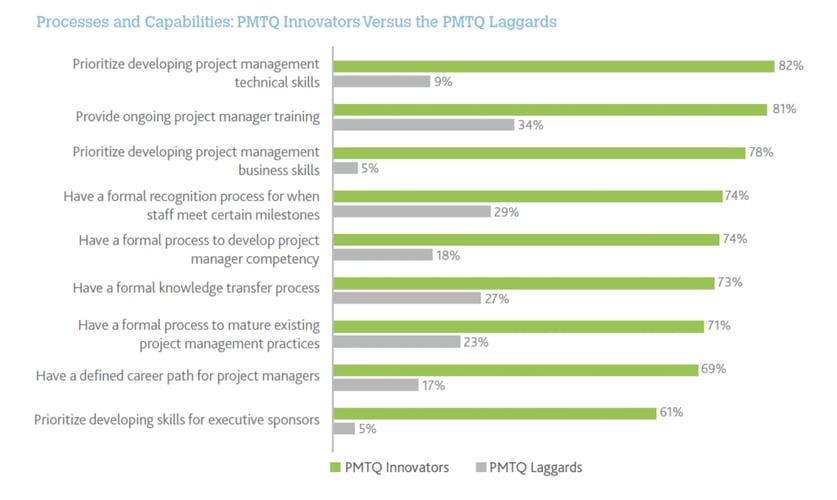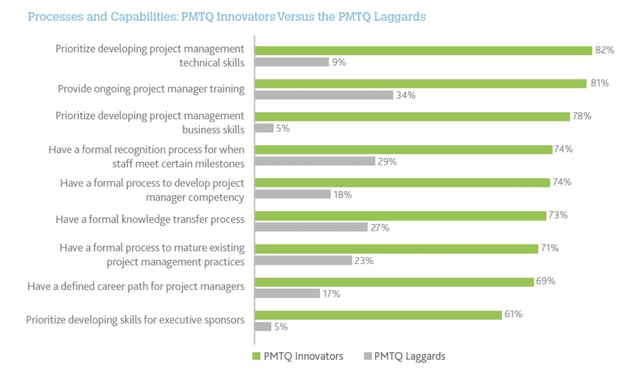June 16, 2020

June 16, 2020

In the latest PMI report Pulse of the Profession 2020 (2020), 11.4% of surveyed organizations attribute investment waste to poor project performance.
What defines project performance and ultimately its success is the completion of the intended goals on time and within budget. As simple as it sounds, organizations still fail in many of their programs due to the lack of resource management strategies in a context that has drastically changed over the past few years. Old processes are no longer working and technological advances are dictating the pace and competitive landscape. Asking for more with less inevitably leads to overstretched assets, both in terms of personnel and operational means.
From research to clinical trials, each with their own sets of subprograms, teams often work on concurrent projects and divide their attention, time, and material assets between ventures. In order to prevent delays and avoid scope creep, it is necessary to empower project leadership with authority.
Below, we share some information on how to effectively manage your resources and understand whether or not you need a team to help.
Below, we share some information on how to effectively manage your resources and understand whether or not you need a team to help.
Resource availability will determine whether or not you can deliver. By assessing resource availability, you can determine how to focus on high-value projects. The benefits of optimal resource utilization include:
Even the best-planned projects require a certain level of progress tracking. Knowing what is happening in real-time can provide insights into what might not be working as expected. In turn, this increases efficiency with prompt reactions and adjustments.
Comparing planned performance vs actual progress helps better understand how resources are managed at a granular level. The benefits of this overview include:
Project resource management includes forecasting the need to hire and/or outsource some tasks. When projects are high-value and require strategic decisions, in-house resources may be insufficient. Similarly, administrative action items are better left to contract workers so as to not overburden your staff.
By keeping your team members focused on the tasks that best match their strengths, you can fill the gaps with external experts that specialize in a variety of fields, such as medical writing, regulatory compliance, and more.
Some of the benefits of outsourcing include:
While a single methodology may not be adapted across all teams, multiple processes usually means redundant work, misalignment in format, and difficulty merging data. Establishing a common framework of execution helps keep the project on track and prevents cross-functional conflicts. Allowing unique approaches when necessary, while standardizing as much of the processes as possible, results in less frustration, better performance, and better deliverables.
Some of the benefits of creating a unified process include:
When deciding whether or not you should use a resource management team, consider your team’s existing skill sets. These could include:
In addition, you should also consider how mature your team’s capabilities are in important facets of the project, including:
In Pulse of the Profession 2019 (2019), PMI highlights the fundamental shift in how work is getting done today. The Project Management Technology Quotient is directly linked to efficacy and project ROI. Simply put, adopting resource management strategies that augment skillsets with technology is no longer a matter of “maybe we will”, but an urgent necessity.

For over two decades, pharmaceutical, biotech, and medical device organizations have trusted ProPharma Group’s consulting experience to help them reach success in complex projects.
Our expertise stems from the diversity of our skilled teams, coupled with a strong commitment to innovation. Our role is to provide our clients with long-term strategies, assist with project management training, and augment in-house resources with ad-hoc specialized teams.
From specific periodic needs to complete resource management processes overhaul, ProPharma Group delivers:
Request a no-obligation consultation to discuss your resource management challenges.

May 29, 2023
Specialty pharma companies are focused on developing drugs for niche markets, such as rare diseases, cancer, and other complex conditions. These drugs often require significant investment in research...

December 11, 2013
The concepts detailed in ICH Q10, Pharmaceutical Quality Systems (PQS) are commonly understood and are progressively being employed in modern quality management systems. The intent of the PQS...